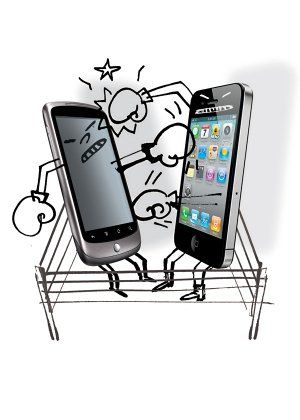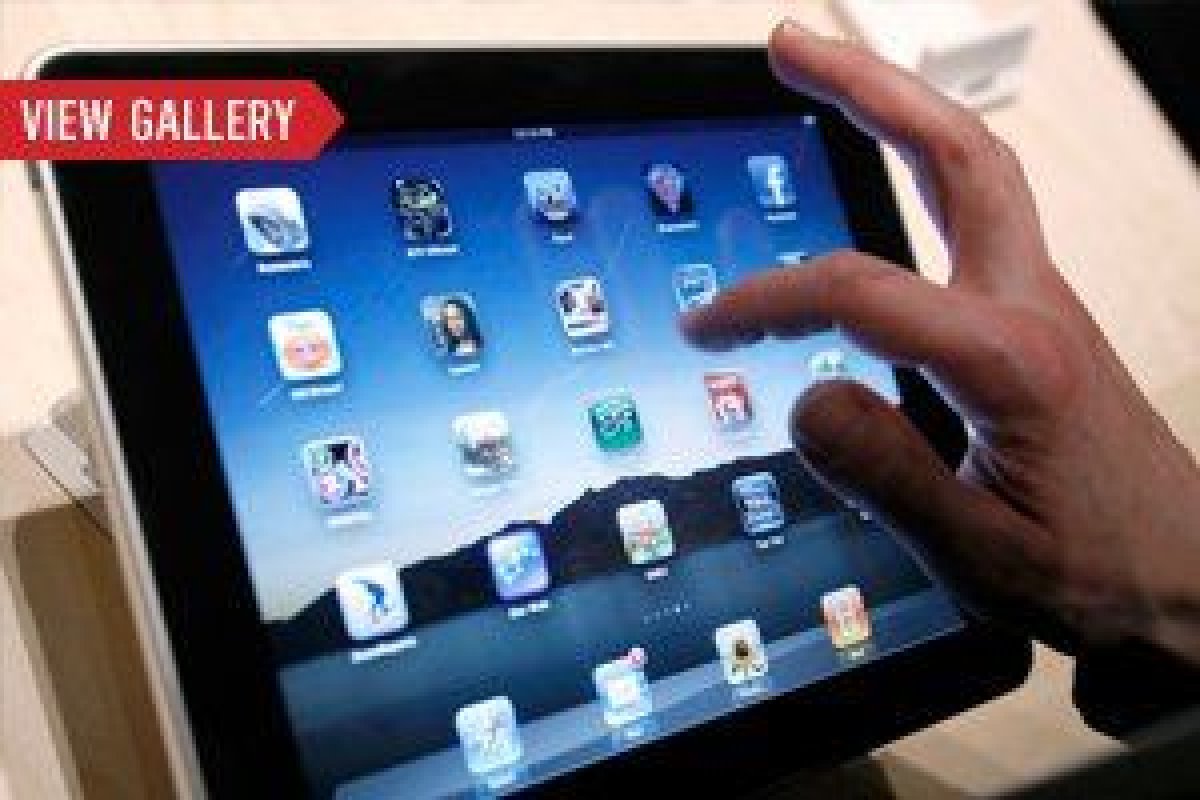
When Steve Jobs took the stage for his keynote address at Apple's annual developers conference last week, he had plenty to say about the new iPhone 4, calling it "the most precise, beautiful thing we've ever designed." He waxed on about its mind-blowing video-chat features and its gorgeous display—even though the Wi-Fi connection failed during his demo. He didn't neglect the iPad, either, pointing out that Apple has sold 2 million in two months—or about one every three seconds. But Jobs didn't say one word about the venerable old Mac, even though the conference used to be the place where Apple showed off the new features coming to its line of computers.
It's a sign of the times. Right now the computer industry is undergoing one of its periodic upheavals in which an aging platform is swept away and replaced by something newer, cheaper, and better. In this case, the victim is the personal computer. Just as mainframes gave way to minicomputers and minicomputers gave way to PCs, the PC is about to be eclipsed by mobile devices. Apple's new smash-hit product, the iPad, might seem like a toy, but soon it and other mobile devices will become our primary computers, replacing laptops and even desktop machines.
And just like the last time around, a battle is brewing to see which company will rule the industry. During the PC wars, Microsoft triumphed, ending up with 90 percent market share, which left Apple with table scraps. In mobile, Jobs sees a shot at redemption. But this time he faces a new opponent, Google, whose mobile operating system, called Android, has emerged as the biggest rival to Apple.
As the presence of Google indicates, it's not just the machines that are changing: the industry's entire business model has been transformed. Instead of laying out big bucks for a huge personal computer that can store hundreds of gigabytes of data, we'll end up using lots of simple, inexpensive mobile devices—appliances, really—to manage photos and videos and music that will be stored online, somewhere out on the Internet cloud. For computer makers, the money will be made not just in the device itself but also in the applications and content and services that can be sold around it, as well as the advertising that can be delivered through those shiny little screens. "The times they are a-changin'," Jobs told a blogger in a recent e-mail exchange, "and some traditional PC folks feel like their world is slipping away. It is."
Laptops and desktops aren't going away overnight, of course. But a glance at Apple's revenue by product line shows just how much the times have already changed. Sales of Macs are slowing while revenue from the iPhone is booming, up from $631 million in 2007 to an estimated $21 billion this year. Next year, mobile devices will represent roughly half of Apple's total business—and deliver twice the sales of Macs, according to RBC Capital Markets.
The mobile space also offers something that Jobs craves: control. Unlike being able to buy pretty much any software program you want for the personal computer, with the iPad you're locked in. There's only one place to buy apps: Apple's online App Store. And Jobs keeps a 30 percent cut of the revenue. As for ads, Jobs will sell those, too, and he'll keep 40 percent. Of course, Jobs also sells music, movies, and books via his iTunes Store, keeping 30 percent. So instead of a one-time sale of a Mac, each iPhone and iPad becomes an ongoing revenue stream. No wonder Jobs is going all-in for mobile.

Only one thing stands in his way, but it's a big thing: Google. Once an Apple ally—Eric Schmidt, Google's CEO, used to sit on Apple's board of directors—Google is now Apple's biggest rival. Both companies want to dominate the mobile era the way Microsoft dominated the PC era. Oddly enough, today's battle looks like a scene-for-scene replay of the PC battle. Apple, as before, won't license its operating software to other hardware companies and wants to do everything itself. Google, in the role previously played by Microsoft, doesn't make hardware, distributes its software widely, and lets partners modify its code however they like.
Both approaches have their virtues. Apple delivers a gorgeous user interface, where "everything just works," as fans like to say. Google's approach is messier, even chaotic. Its user interface isn't as polished as Apple's. But proponents of Google's approach say that a teeming world of rival code writers and phone makers can innovate faster than any single company.
They may have a point. Right now the most advanced smart phone on the market is arguably not the new iPhone 4 but rather an Android device called the EVO 4G, made by HTC, a Taiwanese company. That phone has front and rear cameras, and shoots hi-def video, just like the new iPhone 4. But the EVO has a bigger display, its camera shoots in higher resolution, and it can turn itself into a mobile Wi-Fi hotspot, something the iPhone 4 can't do.
Geeks can, and do, argue over the merits of these phones. But the fact that the two are close enough to be compared side by side is what should have Apple worried. And these are early days. My sense is that over the next 12 to 18 months, Android will surge past Apple the way Microsoft Windows surged past Apple in the 1990s.
Speaking of Microsoft, what happened to those guys? A mobile version of Windows is supposed to ship by the end of this year. But will anyone care? After a disastrous decade of stumbles, Microsoft finds itself so far behind Apple and Google in mobile that it may never be able to catch up. As Jobs said, the times they are a-changin'.
With Nick Summers
Uncommon Knowledge
Newsweek is committed to challenging conventional wisdom and finding connections in the search for common ground.
Newsweek is committed to challenging conventional wisdom and finding connections in the search for common ground.
About the writer
To read how Newsweek uses AI as a newsroom tool, Click here.








